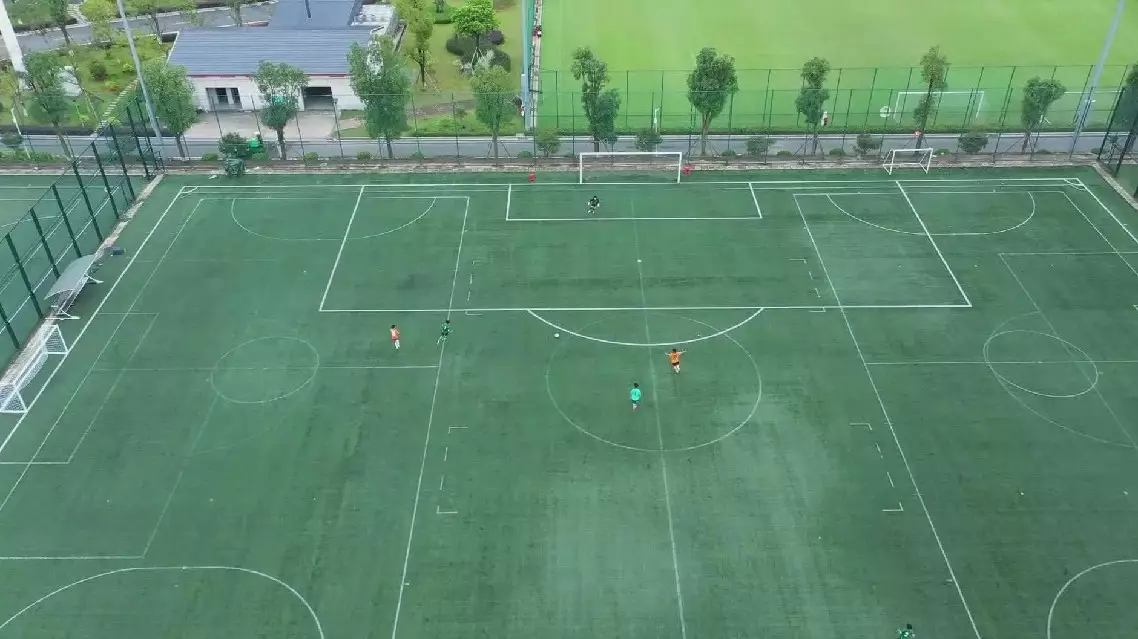People in east China's Jiangxi Province have experienced profound changes in all aspects of life, as both material conditions and cultural-spiritual ethos have improved, including the revival of traditional theater and advancements in modern agriculture.
Jiangxi, home to the ancient art form of Gan Opera, boasts a rich cultural history. Recognized as an intangible cultural heritage (ICH), Gan Opera has deep roots in the province's traditions.
Chen Li, a professor at Nanchang University, plays a dual role as both an educator and a dedicated inheritor of this centuries-old art form.
In her earlier Gan Opera appreciation classes, the focus was largely on theory, which left students disengaged. To spark their interest, she introduced more interactive elements, like having students wear traditional costumes and actively participate in opera performances.
As the lessons became more hands-on, enthusiasm grew, with some students even sharing class videos online, making the course an unexpected hit.
"I'm deeply moved to see so many students arriving one or two hours earlier to secure a seat," Chen said.
This resurgence of interest in Gan Opera is also the result of broader national efforts to promote traditional Chinese culture, which have sparked a growing passion for the art form, especially among younger generations.
Meanwhile, dramatic changes are also reshaping rural life in Jiangxi, particularly in agriculture. Ding Dan, a local farmer born in the 1990s, has been at the forefront of this transformation, experiencing firsthand the rapid advancements in agricultural technology.
"Modern agricultural technology is advancing incredibly fast. Take this machine, for example. It's something we'd never seen around here before. Now, you can see that it's widely applicable from spraying pesticides to fertilizing," said Ding, pointing to a drone.
Thanks to mechanization, Ding was able to lease over 9,400 mu (about 627 hectares) of land this year, a task that used to be much more challenging.
Ding also noted changes in land-use rights transfer. Previously, he had to negotiate door-to-door with each family. Now, transparent bidding systems have made the process more streamlined and standardized.
"But it's not enough just to know how to farm. We also have to keep improving our techniques and technologies," he added.

People in Jiangxi impressed with wide-ranging socio-economic changes
A growing interest in sports is changing lives in the less-populated parts of east China's Jiangxi Province, where world-class training facilities are keeping residents active, churning out skilled athletes and even attracting sports tourism. In the lakeside Wuning County, around 200 tennis courts are spread across towns, streets, and schools, attracting swaths of new players in this county of less than 200,000 residents. This success is largely due to the efforts of Tang Guanghua, a tennis coach. ""I returned home in 2017, and I feel fortunate that tennis changed my life. I want to create opportunities for more children who love tennis in my hometown," said Tang. Numerous athletes and coaches have come to Wuning on Tang's recommendation, while local authorities have supported the development of tennis in the area. Last year, Wuning established its first comprehensive tennis base and was designated a national "Tennis Demonstration County," attracting more international competitions. In Dingnan County, fierce football competitions are thriving. As the largest football training center in South China, Dingnan has 20 middle and high schools recognized as national schools with a focus on football. It boasts 2.05 standard football fields for every 10,000 people, surpassing the national average. In the 2024 Gothia Cup, a team from Dingxi County, with an average age of just 12, triumphed over the host team after competing against 1,900 teams. "Dingxi County is surrounded by mountains and faces a shortage of demographic advantages, with industrial development being limited. By promoting school football, we've seen significant improvements in our students' mental and physical health. Additionally, the football industry now serves as a platform for the high-quality development of Dingxi's economy and society," said Ye Shengning, director of the Service Center for Football Integrated Development. In Quannan County, the sport of rock climbing is flourishing. In 2020, local authorities supported the construction of a high-quality climbing town, providing training venues for coaches and athletes and boosting the local cultural tourism industry. "Quannan County has advanced the model of 'climbing-plus-tourism.' The climbing town has been rated a 4A scenic spot and has become a key destination for the climbing tourism industry in the Guangdong-Hong Kong-Macao Greater Bay Area," said Huang Huiming, director of the Cultural and Tourism Bureau in Dingnan County. China keeps a national scenic area rating system, with areas ranked between 1A and 5A based on criteria including natural beauty, cultural significance and visitor services. Last year, over 7.23 million tourists visited Dingnan, generating revenue of 6.445 billion yuan (approximately 915 million U.S. dollars), marking a year-on-year increase of 29.22 percent.

Small towns in east China emerge as hidden source of athletic excellence










